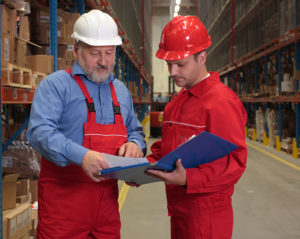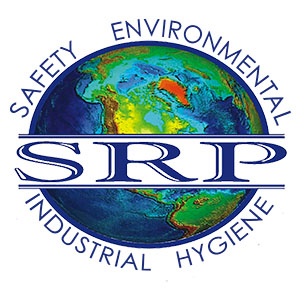We hate to use the phrase ‘older’ or ‘aging’ workforce, however people are now living longer, retiring later or even retiring multiple times. Keep in mind, there is no distinguishable point for when a worker becomes labeled part of the ‘older’ or ‘aging’ workforce-it’s all relative to different situations.
The Silents (70+), Baby Boomers (low-50s to upper-60s), Generation X (mid-30s to upper-40s) and Millenials are all working under the same roof. This makes accommodating workplace safety procedures a priority amongst employers.
 Older workers and younger workers can almost always do the same tasks. However, it is the work and life experiences of each worker that sets apart each age group. Their thought processes and ability to problem solve can be vastly different. Their response to emergency situations and physical abilities can also vary. That’s why trying to bridge the age gap has been proven a challenge for employers.
Older workers and younger workers can almost always do the same tasks. However, it is the work and life experiences of each worker that sets apart each age group. Their thought processes and ability to problem solve can be vastly different. Their response to emergency situations and physical abilities can also vary. That’s why trying to bridge the age gap has been proven a challenge for employers.
Workers age 25 to 54 make up the largest group of working professionals, according to the National Institute of Occupational Safety and Health. Interestingly enough, workers in the upper-50s to mid-70s have increased over the years, while workers under 21 have decreased.
Here’s some more interesting facts. Bruises, cuts, broken bones and accidents involving equipment are more likely to happen to younger workers and more frequently. Even though accidents may happen less frequently to older workers, their recovery time often takes longer. Aging workers typically experience more sprains, falls and back injuries.
How Can You Accommodate Workers of All Ages
Not only will these safety tips accommodate the aging workforce, it will also provide preventative measures and good practice for the younger workforce. These tips will also allow workers of different age groups to work together and share valuable knowledge of the tasks at hand, the industry and company procedures.
- Redesign work stations to meet the ergonomics needs of workers
- Conduct a job hazard analysis
- Provide mechanical assists for heavy lifting
- Correct unstable floor surfaces with mats
- Provide cushioned, quality footwear
- Incorporate light and sound warning for the hearing impaired
- Manage and prevent potential hazards
- Install non-slip surfaces in stairways
-
- Use a different color paint to stripe the edge of each stair
- Install hand rails and grip handles
At the end of the day, these tips are useful in any workplace setting and for workers of any age. If you have questions regarding workplace safety or potential hazards in your facility, call SRP today at (318) 222-2364 or visit us online. We have Safety Consultants located in Charlotte, Dallas, Denver, Honolulu, Midland, Shreveport and Pittsburgh.

 ">
">
 ">
">